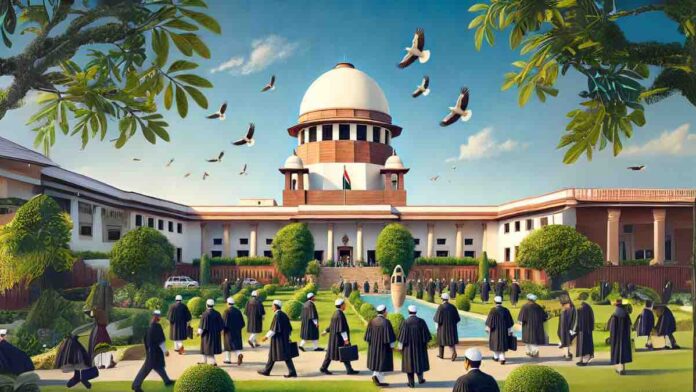In a significant ruling, the Supreme Court of India has upheld the right to freedom of speech and expression, reaffirming the protection of journalists under Article 19(1)(a) of the Constitution. The Court granted protection to journalist Abhishek Upadhyay, halting coercive actions in response to an FIR filed against him for publishing an article critical of
To Read More Please Subscribe to VIP Membership for Unlimited Access to All the Articles, Download Available Copies of Judgments/Order, Acess to Central/State Bare Acts, Advertisement Free Content, Access to More than 4000 Legal Drafts( Readymade Editable Formats of Suits, Petitions, Writs, Legal Notices, Divorce Petitions, 138 Notices, Bail Applications etc.) in Hindi and English.




